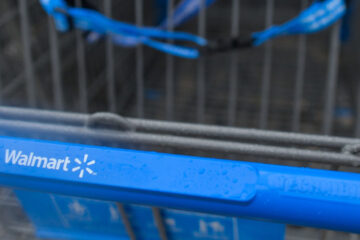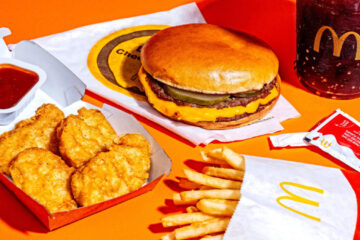Fast-food chain Burger King has done something you’d be more likely to expect from Chipotle or Starbucks.
Fast-food chains face a lot of negative optics. The biggest one, of course, is that hamburgers and fries or even burritos filled with sustainable ingredients (which include cheese, sour cream, and guacamole) aren’t very good for you.
You can make better choices at some fast-food chains than others, but in this restaurant genre, your salad likely includes bacon, ranch dressing and, perhaps, fried chicken.
On top of that, fast-food giants like Restaurant Brands International’s (QSR) – Get Restaurant Brands International Inc Report Burger King and rivals McDonald’s (MCD) – Get McDonald’s Corporation Report and Wendy’s (WEN) – Get Wendy’s Company Report have long dealt with complaints about their packaging. These chains used to use foam clamshells, packages that came under heavy fire in the late 1980s.
Those packages kept sandwiches and chicken nuggets hot, or at least did a better job of it than the current more eco-friendly packaging. (No packaging has been able to make fast-food fries more portable.) Still, the industry changed when public pressure got bad enough.
That’s the same thing that has happened with drink cups and straws. Changes have been made, but the solutions are generally better for the planet, not quite good for it. And as anyone who has used a paper straw knows, they sometimes can be woefully inadequate for the job.
Now, Burger King has a novel new take on to-go packaging. It’s ambitious and it could become the new industry standard. And it also seems likely to fail miserably.
Image source: Burger King
What Is Burger King Doing?
While a lot of chains have tried to make their packaging recyclable, Burger King has taken things a step further — and maybe a step too far. The fast-food giant has been testing reusable and returnable packaging in some of its United Kingdom stores, The Guardian reported.
It’s a test program where customers will pay a fee (£1 or $1.26) for using to-go containers and beverage cups that they can return to special bins through a partnership with Loop.
The chain has also been conducting a similar trial with Loop — the Terrebonne, Quebec, producer of refillable versions of single-use products — in New York, Portland, and Tokyo.
“As part of our Restaurant Brands for Good plan, we’re investing in the development of sustainable packaging solutions that will help push the food-service industry forward in reducing packaging waste,” Burger King’s head of sustainability, Matthew Banton, said.
“The Loop system gives us the confidence in a reusable solution that meets our high safety standards, while also offering convenience for our guests on the go.”
It’s a novel idea, but it’s also one that depends on customers actually bringing the packaging back to a dropoff point. That seems somewhat at odds with the whole idea that fast food is supposed to be convenient.
In the U.K. trial, “customers can return the packaging with the Loop app by scanning the barcode on the pack and putting it into a Loop bin,” The Guardian reported.
“These will be placed outside restaurants where trials are taking place and in other locations found via the app. Customers who return their containers will be refunded their deposit, with all the items professionally cleaned.”
Burger King Wants to Be More Green
And while Burger King may not be the first chain you think of when it comes to the environment — Chipotle (CMG) – Get Chipotle Mexican Grill, Inc. Report and Starbucks (SBUX) – Get Starbucks Corporation Report probably are — the company does have a long-term plan.
Burger King has a long-term commitment to reduce its environmental footprint. That includes having 100% of customer packaging sourced from renewable, recycled, or certified sources by 2025. It has also pledged to recycle customer packaging in 100% of restaurants in Canada and the U.S. by 2025.
This program would advance those efforts, but it assumes customers will participate. (The plan is very similar to Starbucks’s efforts to eliminate single-use cups.)
“During covid, we have seen the environmental impact of increased takeaway ordering, which makes this initiative by Burger King all the more important,” TerraCycle and Loop Chief Executive Tom Szaky said.
“This enables Burger King consumers to easily bring reusability into their daily lives, and whether they choose to eat-in or takeaway, they will be able to get some of their favorite food and drinks in a reusable container.”
It’s the “easily” part of that sentence that this whole program stands on. Not throwing your trash on the side of the road is also easy, but, well, look at pretty much any road.
And while Burger King has the best of intentions here, in the immortal words of environmental activist, variety-show host, and Sesame Street contributor Kermit the Frog, “it’s not easy being green.”


